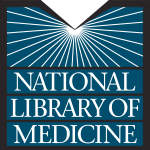- Branża: Library & information science
- Number of terms: 152252
- Number of blossaries: 0
- Company Profile:
The National Library of Medicine (NLM), on the campus of the National Institutes of Health in Bethesda, Maryland, is the world's largest medical library. The Library collects materials and provides information and research services in all areas of biomedicine and health care.
1) Of, relating to, or affecting the right and left sides of the body or the right and left members of paired organs.
2) Having bilateral symmetry.
Industry:Medical
1) Infections with fungi of the genus Aspergillus.
2) An infectious fungal disease that occurs most often in the skin, ears, nasal sinuses, and lungs of people with suppressed immune systems.
Industry:Medical
1) Orthopedic appliances used to support, align, or hold parts of the body in correct position. (Dorland, 28th ed)
2) An appliance that gives support to movable parts (as a joint or a fractured bone), to weak muscles (as in paralysis), or to strained ligaments (as of the lower back).
3) Braces plural: an orthodontic appliance usually of metallic wire that is used especially to exert pressure to straighten misaligned teeth and that is not removable by the patient.
Industry:Medical
Deposition of calcium in normally non calcified tissue
Definition from: Unified Medical Language System (SNOMED Clinical Terms) at the National Library of Medicine.
Industry:Medical
The process by which cells multiply involving both nuclear and cytoplasmic division.
Industry:Medical
To introduce carboxyl or carbon dioxide into (a compound) with formation of a carboxylic acid.
Industry:Medical
Any structural or functional disease of heart muscle that is marked especially by hypertrophy of cardiac muscle, by enlargement of the heart, by rigidity and loss of flexibility of the heart walls, or by narrowing of the ventricles but is not due to a congenital developmental defect, to coronary atherosclerosis, to valve dysfunction, or to hypertension.
Industry:Medical
1) Bacteria are small single-celled organisms. Bacteria are found almost everywhere on Earth and are vital to the planet's ecosystems. Some species can live under extreme conditions of temperature and pressure. The human body is full of bacteria, and in fact is estimated to contain more bacterial cells than human cells. Most bacteria in the body are harmless, and some are even helpful. A relatively small number of species cause disease.
2) A large group of single-cell microorganisms. Some cause infections and disease in animals and humans. The singular of bacteria is bacterium.
Industry:Medical
Of, relating to, or caused by antibodies or T cells that attack molecules, cells, or tissues of the organism producing them (autoimmune diseases).
Industry:Medical
The smallest particle of an element that can exist either alone or in combination.
Industry:Medical
